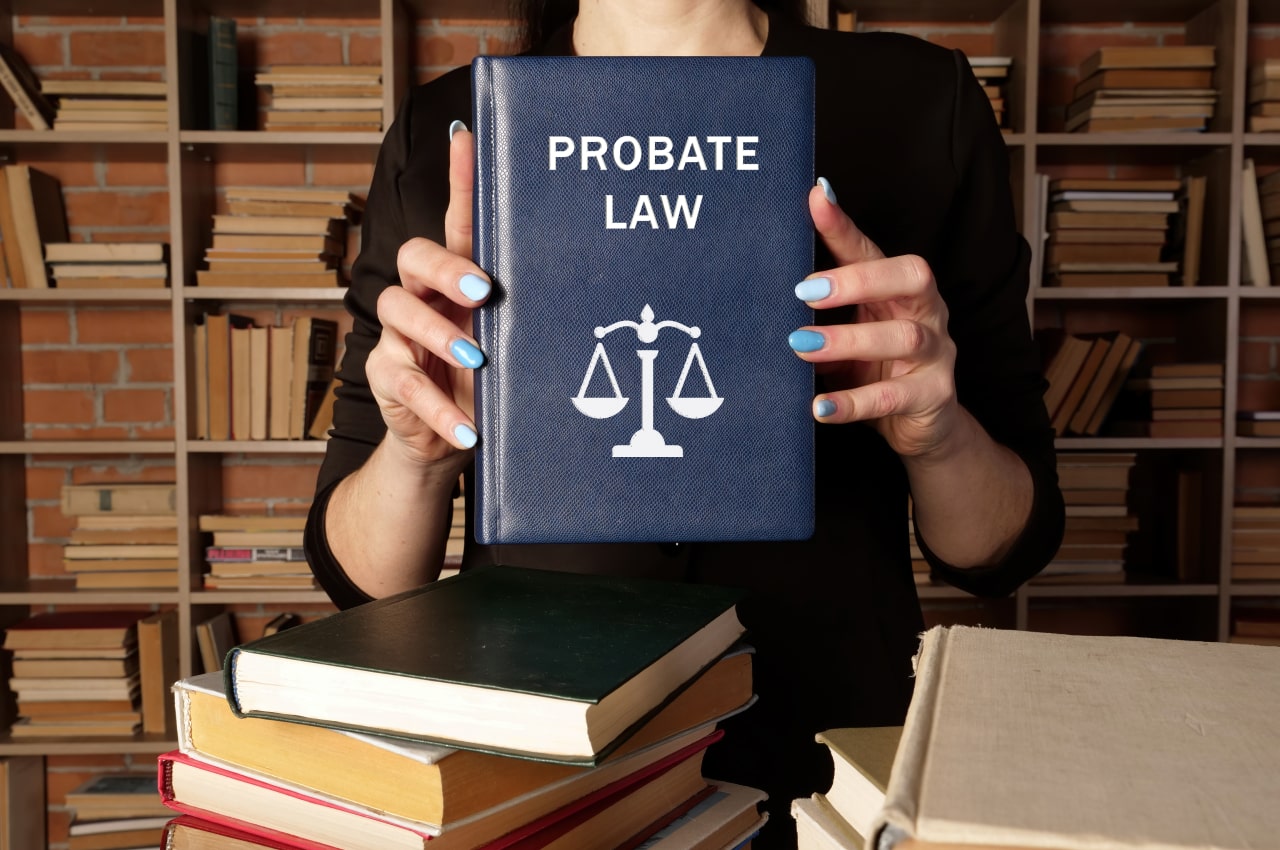Are Wills Public Record In Florida During Probate?
Are Wills Public Record In Florida During Probate?

Probate is the procedure by which a deceased’s assets are distributed. The assets include real estate properties, investments, and bank accounts. It is the general supervision of a deceased individual’s will, or in the absence of a last will, the court appoints an administration to carry out the probate process.

Vital Terms In A Probate
In a probate process, you are going to encounter unfamiliar and complicated words. To avoid confusion and misunderstanding, have the initiative to understand those words.
- Decedent. In a probate, the decedent is another word for the deceased. The desires of the decedent are reflected in their will, and part of the deceased’s assets may be subject to probate court.
- Will. A will is a legal instrument that specifies how a deceased’s assets should be distributed. It also states the deceased’s intentions for the welfare of a minor beneficiary.
- Trust. The individual who establishes the trust is called the grantor. The grantor transfers management and disposal of predefined assets to another person, known as the trustee. The trustee’s primary task is to distribute and handle assets on the beneficiary’s behalf.
- Personal Representative. The personal representative serves as the deceased’s fiduciary and is in charge of carrying out the will. They are known as an executor in other regions.
- Testate and intestate. Testate signifies that the deceased left a will. Intestate, on the other hand, denotes that the decedent died without leaving a will. In the latter situation, the probate court decides how the deceased’s properties are distributed to the beneficiaries.
What Is A Probate Court?
The judicial branch responsible for overseeing the administration of estates, guardianships, and conservatorships is known as the probate court. It guarantees that a will is carried out in accordance with the instructions of the decedent. It ensures that all obligations are settled and that assets are divided fairly. The trustee chosen to manage these things is normally subject to court supervision and must have approval for all of their actions.
Additionally, the probate court also makes a judgment on the legality of the will and the mental state of the signatory if a will is contested. In the absence of a will, the assets of the deceased are distributed by the court in accordance with applicable local legislation.
The Probate Process
In probate, there is a certain procedure that must be followed. It may be a lengthy procedure but runs smoothly if carried out correctly.
Consult A Probate Lawyer
When a testator dies, it is critical that the personal representative or heirs speak with a probate lawyer. A probate lawyer can assist in obtaining any papers required for the process. They also assist personal representatives in explaining their obligations and answering concerns about carrying out the decedent’s will in line with Coral Gables, FL law.
File A Petition In A Probate Court
Once the personal representative submits a Petition for Administration with verifiable details, the probate proceeding formally begins. This should be submitted to the county court in the decedent’s home county.
Notify The Creditors Of The Grantor
The personal representative advises the creditors of the grantor’s death and opens the grantor’s estate. The personal representative is required to publish a Notice to Creditors in a local newspaper where the estate is being administered, but this can also be carried out directly. The ad must appear once per week for two weeks.
Collect The Assets Of The Deceased
Probate assets refer to the properties or estate of a deceased individual. However, not all assets are resolved by a probate court. The assets must be under their name, with no designated beneficiaries. Real properties, automobiles, bank accounts, and other individually held titled possessions are examples of probate assets.
Settle The Outstanding Taxes & Debts
Following the gathering of the deceased’s individual assets, the process of settling the deceased’s outstanding bills begins. This includes mortgages, credit card bills, loans, medical expenses, and also funeral expenses. A deceased person’s tax return must also be submitted, and any unpaid estate taxes must be settled.
Distribute The Remaining Assets
After all outstanding debts and taxes are paid, the remaining assets are subsequently divided among the deceased’s beneficiaries. All assets are to be accompanied by the necessary transfers of titles and deeds. Depending on whether the deceased left a valid will, there are many procedures for dividing the deceased’s remaining assets.
Close The Decedent’s Estate
The personal representative petitions to be released from their fiduciary duty when all of the decedent’s assets are divided amongst the beneficiaries, concluding the estate.
When Is A Will Considered A Public Record?
If a will is filed with the court in Coral Gables, FL, one can get a copy from the probate court. When a will is submitted to the court, it is considered a public document. After the decedent’s passing, the trustee of the will must submit the will to the Circuit Court clerk within 10 days. It must be filed in the county where the deceased individual last resided.
Inventories & Money-Related Matters Are Confidential
The majority of probate papers are public records. However, assessments and money matters remain confidential. They are only available to the personal representative, the personal representative’s lawyer, or an “interested party,” as described in the Florida probate rules.
A Will Is Not To Be Posted On Any Website
The courts of Coral Gables, FL are not permitted by law to post a picture or a file copy, document, or paper pertaining to proceedings or cases covered by the Florida Probate Rules on a website accessible to the public. Individuals who need a record of the will should go to the civil courtroom in the county where the grantor lived. The clerk is expected to save and maintain the original will for a minimum of 20 years.
Probate With An Established Will
A testator is the maker of a will while the trustee is in charge of starting the probate procedure once the grantor passes away. A family member often serves as the trustee and the details are usually included in a will.
After the grantor’s death, the trustee must submit the will to the probate court. The probate procedure is a court-managed procedure where the validity of the will is established and then recognized as the original final will of the deceased. The trustee specified in the will is given legal authority to act on behalf of the decedent after being formally appointed by the court.
Probate Management Without A Will In Place
When a person passes away without leaving a will, it is referred to as dying intestate. An intestate estate is also one in which the court has declared the will submitted as void. The distribution of the decedent’s assets in accordance with state legislation is a part of the probate procedure for an intestate estate. Probate may not be required if a deceased individual has no known assets.
Appointing a trustee to manage the decedent’s estate is the first step in a probate court case. The trustee serves as the executor of the estate, receiving and disbursing all legal claims against it.
Finding the deceased’s lawful beneficiaries is the trustee’’s job. The probate court will decide what assets should be dispersed among the rightful heirs and how it must be distributed. Most probate rules grant assets to the deceased person’s surviving spouse and their children. Our probate services.
Obtaining A Copy Of An Unprobated Will
When a person dies but their will is not probated, it is still not part of the public record. Persons could still be able to obtain copies of the will if it identifies them as beneficiaries, or someone entitled to receive a property as stated in the will. A guardian of a minor may also be allowed to get a copy of the will.
To obtain a copy of the will, one can also get in touch with the estate’s personal representative. According to Florida law, a personal representative is considered a fiduciary, or a person acting in another’s best interest before their own. A personal representative is known as executor and administrator in other states.
An individual, a trust company, or a bank can serve as a personal representative. A judge appoints a personal representative to oversee the handling of the decedent’s probate estate. If the person asking for a copy has a valid cause to see the will, the personal representative can release a copy.
Is A Lawyer Acting As Personal Representative Necessary?
According to the probate regulations, a formal estate’s personal representative must be represented by a lawyer. Some minor estates don’t require legal representation since the court determines how the assets are distributed. Another justification for hiring a lawyer is the intricate procedural procedures for estates requiring a personal representative.
A Probate Lawyer Can Explicitly Explain Important Legal Concepts
You could be perplexed by the complexities of probate law without being represented by a probate lawyer. When working with a lawyer, you get clarity whenever you require it and as often as necessary. Legal terminologies are also translated into layman’s terms for you.
Expect A Transparent, Compassionate, & Open Communication
It is secure and convenient to communicate with a knowledgeable probate lawyer at The Estate Plan law firm. You may talk with a probate lawyer who listens and cares about your situation over the phone, through a video chat, or in person.
&
Have questions about how to get started on your estate plan or estate needs?
Have questions about how to get started
on your estate plan or estate needs?
Contact the experienced estate planning professionals at The Estate Plan
by calling us at (305) 677-8489.
Contact the experienced estate planning professionals at The Estate Plan by calling us at
(305) 677-8489.

